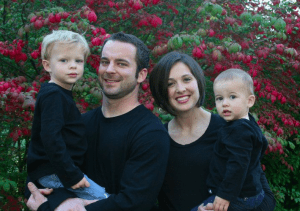 This past Sunday I started preaching through the book of James for the first time ever. I have always appreciated James, but have never preached him, and in order to get ready for this series I tried to check out other series done by other pastors and stumbled upon something interesting.
This past Sunday I started preaching through the book of James for the first time ever. I have always appreciated James, but have never preached him, and in order to get ready for this series I tried to check out other series done by other pastors and stumbled upon something interesting.
James is a book about wisdom and how it looks for a community of wisdom to live where and when she is. It is filled with theology that is incredibly practical, and it is also incredibly neglected in today’s churches. Not only are not a lot of pastors talking about the book of James, but those who are tend to fall into certain categories. Outside of when the lectionary mentions it, most of the people I saw preaching or teaching through James were the pragmatic, relevant, life-application kind of preachers. And that got me thinking, “why aren’t we pastors preaching James more often?”
I gravitate toward a specific style of preaching. I like inductive, narrative preaching. But my preference has often led me to be critical of other ways of doing it. I have often found myself really condescending about preaching that wasn’t like mine.
The worst of all preaching (for me) was the practical, pragmatic kind. I didn’t like the kind of preaching (or preachers) that would put this grand story of God repairing the world on the bottom shelf. It seemed like they were dumbing it down.
A few years ago, I heard the preaching professor Tom Long speak about the evolution of his own opinion on this. He observed that the old approach to preaching had really taken a beating over the years. Tom Long said that the sermon with 3 points and a poem had died and he had danced on its grave.
And then….
Suddenly all of these churches started to pop up where the preacher had adopted this old preaching style. And these churches seemed to be blowing up with unchurched and de-churched people. They were being drawn to a kind of preaching that Tom Long said should have been as extinct as the dodo-bird.
And that is when Tom Long made this great observation. These preachers aren’t stupid. They aren’t just trying to re-live the past, they are trying to preach Wisdom…The art of knowing what God is calling us to do in the moment, and the practical ways that the Jesus life looks like today.
I think that is right. After all, some of our most ancient Christian texts, like the Didache, or sermons by John of Chrysostom (the Andy Stanley of his day), were practical real-life ways of living out the Jesus story for their time. They were specific to their culture, and they were important enough that churches preserved them for thousands of years.
During my first few years of ministry, I began to notice that there were lots of people coming from the Catholic, Episcopalian, or other High Church traditions. It would have been easy to just assume that meant our way of “doing church” was right. But I also saw a lot of my friends leave the tradition I belong to, heading the other direction. People who had been raised up in Churches of Christ or Baptist or Pentecostal churches started finding a home in higher churches with more liturgical traditions. It seemed like both high church and low church traditions had revolving doors on them. As I asked my incoming and outgoing friends why they were leaving or coming, they had an interesting response.
For the people coming from higher church traditions, they loved the story aspect of the sermons, and how accessible the sermons were. Many had been participating in rituals for most of their lives, but had often failed to understand the significance behind them.
For the people leaving these lower traditions, they were actually drawn to the ritual of it all. They loved the stained glass, the beauty, the smells, and the poignancy of moving through liturgy that had been going on for thousands of years.
It is as if, for both groups of people, they were finding the gospel all over again. Anthropologist and Missiologist Paul Hiebert makes a great observation about all of this. He said that in many areas of the world there are two types of religion: High religion and Low religion. As missionaries would go to places in the world that were known for being associated with a particular major world religion like Buddhism, Christianity or Islam, they would discover that while most people would say they belonged to the dominant religion of their area, they would be unable to tell the basic tenets of their religion’s story. And they were most often deeply involved with the practices of folk religion like magic, astrology, or spirit worship.
The draw of folk religions, according to Hiebert, is that it doesn’t concern itself with the big questions, like how was the world created, or where did we come from? Instead, low religion concerns itself with the “everyday.” And in the words of Hiebert:
“Given our Western view of things, we do not take folk religion seriously. Consequently, we do not provide biblical answers to the every day questions that people face….It should not surprise us that many young Christians continue to go to shamans and magicians to deal with such questions.”
My own bent is to preach High religion. I love to deal with the big questions, and this Cosmic story that we have inherited from the Christians who have gone before us. God is, after all, repairing every inch of every galaxy in His entire creation. It is hard to not get excited about that. And we need that. If churches forget how big their story is, they might begin to live small, petty, self-centered lives.
But the other side of that is true too. The job of a preacher is also to help their people find their place in the story, and what this big story looks like next Tuesday when they are put in a comprising situation at work, or when that single mother needs to know how to have the endurance to just make it one more day. They need Wisdom. Because sometimes preaching is about the Big Story, sometimes it is about something that can’t be reduced to principles or good advice.
Sometimes preaching is about High Religion. But we can’t forget the wisdom of preaching, is preaching of Wisdom.
I would like to hear from all the preachers out there…How do you balance this? What do you lean toward? Have you seen this in your own ministry?











